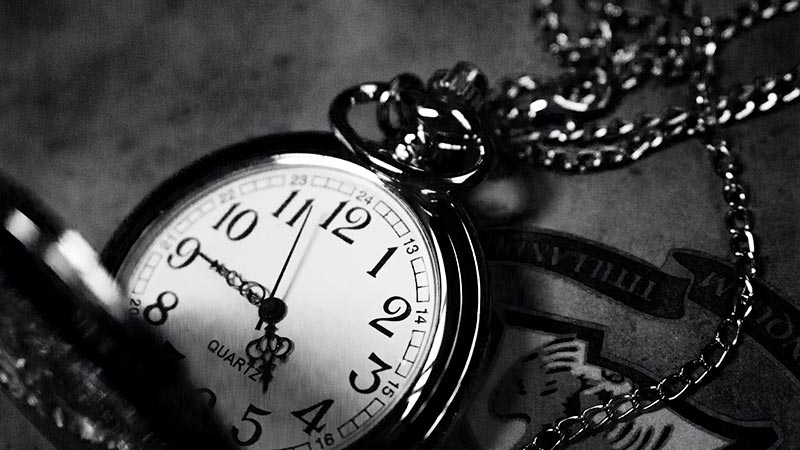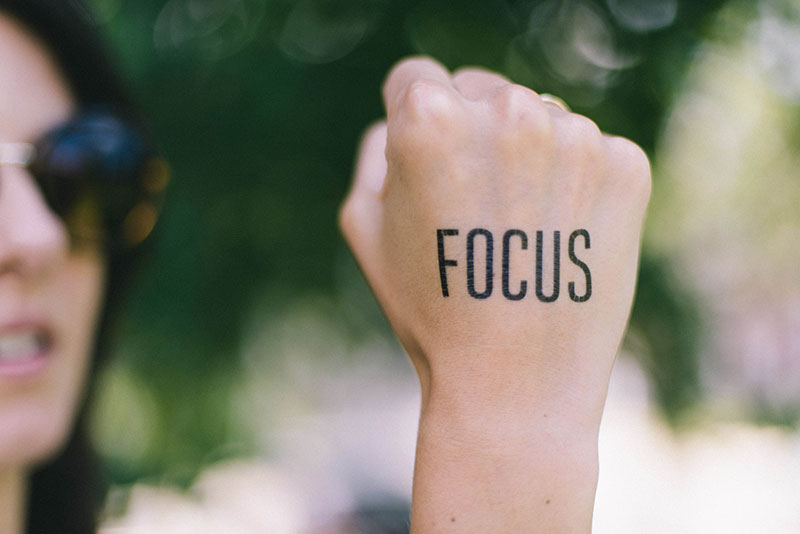How long is the duration to discard, change or establish habits in our lives? You may be asking yourself this question right now. Maybe because your current project seems gigantic and you would like to reach your goal right now. But as we all know and have certainly all experienced: we are creatures of habit, Change is difficult for us. And the temptation is often great to simply leave everything as it is. But there are probably pretty good reasons for you to strive for a change or to make New Year's resolutions. Be it the Abstain from smoking or the changeover to a vegan lifestyle. But what we have done for years or decades usually cannot be discarded overnight, which is why many people fail their challenge.
In this article, I want to give you everything you need to know about how long it takes to break habits. In addition, you will learn the eight factors on which the exact time frame depends quite decisively. Let's go!
Here is in advance a short Overview for you:
The average duration to break, change and establish habits

Whether you no longer eat meat, more often with the Bicycle ride or become more determined wants: successful changes in life basically go through the following steps:
- Determine negative habit
- Recognize triggers and motives
- Find alternatives replace old habit
- Reward for behavior change
- Seek support from the environment
- Avoid relapses in a targeted manner
- Persevere
But how long does this process take before a new habit is fully adapted? How long do you have to persevere until you get used to the change and no longer "fall off the wagon"? There are the following main theories about this.
21 days
In the middle of the 20th century, the American surgeon Maxwell Maltz, that his patients needed about 21 days to get used to the changes made to their bodies by surgery. With his personal changes, he also found that it took about 3 weeks for them to become anchored as a new habit in his daily life. He then wrote his theory, based on observations in his own environment, in 1969 in his book "Psycho-Cybernetics. down. A scientific justification for his assumption was missing in it, however. Nevertheless, the book provides initial information about the approximate duration of habit discontinuation.
30 days
The period of 21 days is too short for many people and their plans. That is why today a period of 30 days is often recommended to bring about a change in life. This is the case, for example, with my 30 Days Sugar Free Challenge or also at the Veganuary. From a psychological point of view, the probability of success is also higher because one is now no longer talking about a few days, but rather about speaks of a whole month, to which one devoted to the establishment of a new habit.
66 days
Phillippa Lally and her colleagues at University College London conducted a Study with 96 students (Ø age 27 years) who were asked to adopt a new healthy daily routine for 84 days. These routines ranged from the Walking, to morning SitUps. She found that it took the students an average of 66 days to an automatism has arisen from the new behavior is.
90 days
Again and again, one also hears about a duration of 90 days in relation to the establishment of new habits. This value also comes from the study of the University College in London and refers more precisely to the time that is necessary, to make more complex activities an everyday habit - for example, changing one's own lifestyle. So going for a walk regularly should become a habit in 66 days on average. Vegan or according to Zero Waste to live should take about 90 days due to the complexity of the change.
Notice: It tends to be faster to get used to new things. If you also have to break old habits, the hurdle is correspondingly greater. Of course, this does not make the goal any less desirable.
8 Factors - What does the duration of breaking habits depend on?

The theories and studies are therefore average values. However, they do not determine how long you will need for your current project - they only give you an indication. Rather, the actual duration of this change depends on various (mostly personal) factors, which I would like to briefly introduce to you below.
1. complexity of the new habit
Of course: The more difficult, serious or complex a particular change is, the more time it could also take. And the simpler the implementation, the faster it goes. For example, it is less complex to always put dirty dishes directly into the dishwasher in the future. However, it is much more difficult to change one's own lifestyle and in the future, for example, to live minimalist.
Notice: Phillippa Lally's "66 Days" study also found that particularly complex habits take about 1.5 times the time of simple changes before they become established.
2. depth of the old habit
I ate meat, dairy products and eggs for 30 years of my life. About three times a day. Accordingly, the change (to give it up for ethical, environmental and health reasons) was not so easy for me at first. Among other things, because I have many Beliefs and beliefs I had to fight against or adapt to. The more convinced one was of a habit, the more difficult it is to break out of it and bring about a change. This is a valuable insight that can significantly shorten the time it takes to break habits.
Tip: Under "Why vegan?"I'll tell you about my reasons for this change in my life in detail.
3. willpower
As I said, whether 21, 30, 66 or 90 days: these are averages of how long it takes to break habits. You personally can do it in a week - maybe you need 26 weeks. A very decisive factor for the actual duration is your determination. How badly do you want it and how desirable is the goal? What kind of effort would you put into it?
Tip: Like to use my Tips for more determination and these Willpower Quotes, to really push you!
4. SELF-DISCIPLINE
In addition to willpower, a healthy degree of self-discipline is also important. Especially when it comes to complex changes in life that are not implemented and established overnight. How strong do I stay in situations where it would be easy to just fall back into my old habit? For example, if you haven't smoked a cigarette for 3 weeks, you might at least be tempted to fall off the wagon in the smokers' corner at the next garden party. Self-discipline is therefore quite decisive for the duration until an old habit is discontinued or a new habit is established.
5. skills & preferences
If I am extremely athletic and agile, I usually find it easier to adapt a new sport that has similar Strengths requires. And if the new sport then also gives me particularly Fun because, for example, it's a team sport like beach volleyball, then I don't need much time to get used to this change (going to beach volleyball regularly from now on) in my life. Therefore, personal abilities and preferences are also a determining factor for the eventual duration of breaking habits.
6. timing
The tipping point can also be when you initiate a change. So if you have a get rid of bad habit then you should avoid the triggering occasions for this as far as possible in the near future, so as not to be tempted to relapse. However, if you are about to, Establish a new habit worth striving for, then you should create enough time and opportunities for it.
7. EXPECTATIONS & BENEFITS
Eating meat had one benefit for me for a long time: it was delicious. Moreover, I believed that it was the only way to stay strong. Today I know that you can also stay strong with a balanced plant-based diet. I would probably still find meat delicious, however, the cruelty to animals which are used for this purpose (among others in the Factory farming) is necessary, the appetite. The pain (values and actions do not fit together) was finally bigger and stronger than my habit. Fortunately, the plant-based diet can also meet my expectations and the corresponding benefits. Also because I did not have to do without anything, the conversion from meat eater to vegan was quite easy for me in the end.
You start a change with a certain goal and a certain expectation -. the clearer and more desirable you define them for yourselfthe more likely you are to establish the new habit.
8. preparation
We all know that New Year's resolutions usually fail. This is mainly due to the fact that we decide too spontaneously what we are going to do. If you want to get rid of an old habit and create new ones, you should know exactly why, when and how you do it. So take some time and deal with what you want to change and achieve. Then the process of establishment will not take so long. Good preparation is therefore an absolutely crucial factor for the duration of habit breaking.
Tip: I have given you a List of sustainable resolutions (for the new year) put together that you are welcome to tackle!
Permanently break habits - It takes time and determination!
The questions "How long does it take to break habits?" or "When has a new change become established in your life?" therefore cannot be answered in a general way. There may be studies, theories and resulting average values - but in the end, the project itself, your environment and, above all, your character play the decisive role for the actual duration of the change.
Do you have questions or suggestions about this topic? Then feel free to write me a comment!
Remain determined,

PS.: In a separate post I will now introduce you to the books that changed my life in a decisive way have. Have fun reading!






I think the 30/90 rules apply here. 30 days to establish a new habit and 90 days for a new lifestyle.
Comments are closed.